 I’ve posted previously about the need for us to be mindful with our language. Last month I cited a specific example — family of one — that represents less than effective thinking about singles in the Church. This week I return to the same theme with a different variation. I harp on the need to watch our language because language reveals the way that we think. And if we think in less effective ways, then the worlds we create in our interactions with one another will also be less effective. Such is the case with the phrase family ward. I vote that we remove this phrase from our vocabulary. That’s right. Let’s put this phrase on the next bus, train, ship, or plane out of town — whichever leaves first — and expunge it from our lives forever. Building Zion means including everyone  What’s so bad about using family ward? It’s really quite simple. By labeling a ward as a family ward, we announce that one must have a family in order to belong with that unit in the sense of identifying with that unit. That’s the way labels work; they identify what constitutes the grouping. This is part of the reason why many singles feel out of place in these wards. Trying to feel that you belong to a group identified with something you don’t have is very difficult. It runs against the grain of how language naturally works. That can’t be anything but difficult. Many singles struggle with the identity difficulties presented with this label. Some even separate themselves from the safety of their wards and stakes. How do you build Zion when you don’t include everyone? The Brethren seem to have some sensitivity to this idea. The General Handbook of Instructions does not use the phrase family ward. Instead, there you find the phrases conventional ward and traditional ward. I applaud the Brethren for their attempt. At the same time, with no intent to demean or belittle, I would suggest that these phrases don’t go far enough. What have wards in the Church conventionally been? What have they traditionally been? They have been centered around families. While a step in the right direction, these nominatives simply don’t adequately address the questions of identity inherent in their use as labels. Moving towards inclusiveness 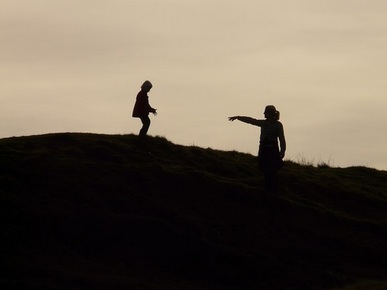 You’re probably wondering what I would suggest that we use instead. And I’m going to tell you. I believe we should use the term general membership ward. This phrase didn’t originate with me. I first heard it while conversing about singles issues with a stake presidency counselor in Seattle. And I’ve loved it ever since. General membership ward responds perfectly to the struggles in identity that phrases like family ward present. People naturally think that people with families belong in family wards. It’s just the natural train of thought. Likewise, anyone from the general membership of the Church can feel that he or she belongs in general membership wards. In comparison, the words general membership is a mouthful when compared with the word family. But I see that as a great thing. Intentionally going the extra mile to use those extra syllables communicates a desire to bring everyone together and help everyone to feel included. Promoting the family 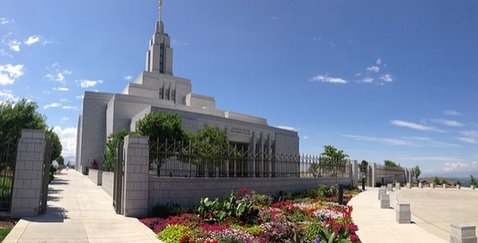 I know that some people will encounter this and think that I’m making a mountain out of a molehill. They might also argue that we should be promoting the family. Using family ward appears to do just that. How do you create a true unity of the faith without attention to language? Helping people to feel included doesn’t put things out of perspective. Rather, it puts them very much into perspective. And just because I’m single doesn’t mean I don’t support the family. Just because I want to be sensitive to others so that they feel encouraged to progress to the same heavenly home we are all trying to reach doesn’t mean I don’t support the family. Using the phrase general membership ward to describe our congregations does not in any way diminish the family. In fact, it provides us more opportunity to support it. Supporting the family as an institution must include the creation of new families. And how will you help singles to do that if they are not present to receive your ministering? It’s no small matter to want to belong and to identify with a given group. That’s something that every human being naturally wants. And it’s something that we can work to satisfy for the singles in our midst by paying more attention to our language. Let’s all stop using family ward and start using general membership ward. Zion can’t be built unless we do it together. Let’s all come together so that we can build Zion together.
0 Comments
 Many LDS singles think being single makes them defective. But being single is not the problem. If we dig deeper, we can identify the real problem. On one hand, we singles want to belong to a family-centered culture yet don’t have our own family. On the other hand, we don’t want to go anywhere else. Who else has a fulness of truth? We’re torn. And every week, church highlights what we don’t have, ripping that tear a little more. Many answer this dilemma with singles wards. When I was in singles wards, I agreed with that “solution.” But now I don’t. Yes, in wards of “their own,” singles feel belonging. No one, single or married, has to change themselves in any way. Singles go there. Everyone else stays here. However, assuming that belonging equates with marriage exacerbates the situation. By providing a separate place for single saints to congregate, we avoid the real problem. And that creates larger problems for singles whether or not they marry. The desire to be accepted within our LDS subculture often motivates those singles who do marry. Most rush the process. They don’t build the friendship needed for dating, let alone marriage. They enter quite unprepared into marriages which result in trouble and, increasingly, divorce. Singles who don’t marry also struggle. The identity issues they avoided but never solved now confront them. Although serious, remaining unmarried isn’t the real problem. The real problem is basing Latter-day Saint identity on marriage instead of baptism. Truly helping others  We’re all on the same journey to the same heavenly home. Those who accept baptism also commit “to bear one another’s burdens, that they may be light; yea, and . . . to mourn with those that mourn; yea, and comfort those that stand in need of comfort, and to stand as witnesses of God at all times and in all things, and in all places that ye may be in, even until death, that ye may be redeemed of God, and be numbered with those of the first resurrection, that ye may have eternal life” (Mosiah 18:8–9). How can that not include helping each other on the journey home? Sure, some of us progress through marriage without much if any help. But what about the rest of us? Shouldn’t we on the path home help those behind us? We support the family as an institution by creating new ones. Yet the way we traditionally “help” create new families resembles how the Navy teaches recruits to swim — by throwing them into the water. Those who swim survive. Those who sink really weren’t wanted in the Navy anyway. How is that any different from throwing everyone single into a singles ward and then hoping for the best? Sometimes it happens, but not always. Does that mean that those who don’t get married weren’t really wanted in the Church anyway? Some singles feel that way. I know that feeling. But I refuse to believe singles have no place in the Church. The gospel is for everyone. God accepts all who do the very best they can. I have a dream  I don’t deny that singles wards offer many opportunities for singles to grow as well as to meet potential eternal companions. But neither do I deny that more and more singles ward attendees age out without getting married. In addition, the average age at which young adults marry is increasing. If singles wards were the answer, then both trends would move in the opposite direction. As a broader community, we Latter-day Saints don’t dig deep enough into the influences of our culture and the habits those influences promote. Because we all want to belong and our LDS culture conditions acceptance on marriage and family, it’s only natural to want those. Add our design as human beings to be coupled, and you’ve created real problems for the unmarried. The solution is not a new program but rather a new attitude on the part of everyone — single or married. We need to switch basing cultural acceptance from marital status to baptism. We need to create a unity of the faith. By separating ourselves into smaller groups based on whatever status, we drive wedges between ourselves. And wedges always move deeper. Hence the current push to divide singles into decade age groups. That’s the wrong direction. That divides rather than unites us. That encourages us to see each other through generational lenses which God doesn’t use. We need to come together, surrender to love, and work to see each other the way God does. That means all of us — singles and marrieds — coming together in a general membership ward where everyone helps everyone on our eternal journey home. Lehi had a dream in which he helped other members of his family partake of the fruit of the tree of life. I too have a dream. I have a dream in which we all come together and help every member of our LDS community family make and keep every sacred covenant available. I have a dream in which we all go home together. Let’s unite and make that dream reality.  Valentine’s Day is one of the worst holidays for singles, or at least for the ones who don’t have a significant other. Pity parties abound as tears flood the land. I think I’ll build a boat. And then I’ll sail that boat to RootsTech. RootsTech, the world’s largest family history conference, takes place every February in the Salt Palace just a block away from Temple Square in the Mormon Mecca of Salt Lake City. I can’t turn my heart to my family in the present because I don’t one (family of my own, that is). But I can turn it to my family in the past. And RootsTech is a great place to do that. A time for family 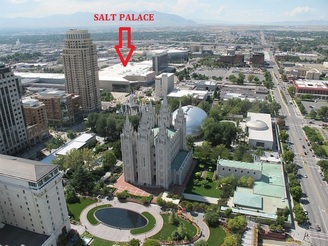 I first heard about RootsTech in 2012. I stumbled onto their website streaming live sessions. I watched some on my laptop and found them impressive. What intrigued me the most was a certain spirit held by attendees in the Twitter feed. RootsTech seemed like the cool place to be. I thought about traveling to be there in person. And in 2013 I did. I not only attended the conference but also convinced my father to attend. My father is one of those genealogy nuts. He’s definitely got “the bug.” He spends much of his spare time on his computer adding, removing, and otherwise correcting information in his genealogy database. It’s no surprise why. My father works in the database software industry. Believe me, it wasn’t hard convincing him to come with me to a family history technology conference. The time we spent together at RootsTech created some good memories. We attended different sessions because we were interested in different things. He was interested in coding and databases, while story and ways to preserve and to share stories with others attracted my attention. But outside of the conference sessions, we shared meals, visited historic sites, and explored the area. That included visits to a former resident of an ancestor and the Salt Lake City Cemetery to take photos of some graves. We even searched through records at the Family History Center. Family history is work done for families, and we learned about it and did it together as family. By families 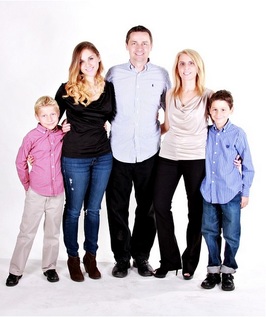 That’s really what family history work is — a work done by families for families. And you don’t need to be married to join the movement. In fact, singles can provide a great bulwark to this labor of love. And those who do will find their hearts nourished. I’ve posted before about how singles who don’t have families of their own can turn FHE into Family History Evening. It’s a great practice that I highly recommend. Instead of pining after the family you don’t have in the present, you can turn your heart to the family you do have in the past. And there’s many ways to get involved. It’s not just research into names and dates. It’s unfolding the story of who your ancestors were and the heritage that they left for you. It’s understanding not just who you are but why you are. That includes interviewing relatives to capture the stories of their lives and how they confronted the challenges of their times. That includes capturing your own life story for those who come after you. That includes research for evidence that establishes or confirms relationships. And that includes indexing efforts that help others to find that evidence for their own lines. Rootstech 2015 has many activities planned for attendees, and today I’m traveling to be there in person for my share. Perhaps the most engaging of these activities is the all-day free event on Saturday called Family Discovery Day. If you’re in the Salt Lake area on Valentine’s Day and can arrange your schedule to attend, I highly recommend it. Play well your part  If you can’t attend RootsTech in person, you can watch select workshop sessions streamed live on their website. These presentations are usually accessible in the weeks after the conference. In addition, the Church has placed a wealth of great learning resources on FamilySearch.org. Living your best life means being your best self. This week, do something for your heart. Learn more about what role your family history efforts should take and how you can improve in that role. I am a living fulfillment of prophecy made 2400 years ago by Malachi. I’m turning my heart to the fathers and the promises made to them. And I’m not the only one. This Valentine’s Day, you can bemoan your unmet expectations for a complete family of your own in the present. Or you can be a living fulfillment of prophecy and turn your heart to your family in the past. I choose the latter. That and I choose to keep my boat.  Recently I assaulted the faulty assumption of singles groups as dating forums. This week I examine a separate but equally faulty assumption. Singles life depletes some so much that they decide to attend activities simply to have fun. Now, some amusement is desirable, especially when the Proclamation on the Family extols “wholesome recreational activities.” Used appropriately, a little fun can rejuvenate. But centering our involvement around fun leaves many individual needs unmet. We should reject seeing singles activities as activity clubs just as we do dating forums. Both the dating forum and the activity club dismiss the Master’s call to surrender to love. Both turn us away from the outward focus of Christian disciples and towards the inward focus of the natural man. Getting leadership on board  Of course, leadership holds the key determining the character of any singles group. Nothing happens in the Church without leadership support. Members generally reject what leadership rejects and embrace what leadership embraces. Thus, when leadership has faulty assumptions, so do most others. By leadership, I mean leaders at the local stake and ward levels. I believe that regional and global leaders envision everyone coming together to build Zion. And that’s the essence of the support networks that singles groups should be. However, many local leaders of singles groups — both single and married — do nothing more than provide a slate of template activities which don’t consider the needs of individual singles. Often, few singles attend. These same leaders will then wonder why hardly anyone participates. The answer is pretty obvious when you take a step back. Separate yourself from yourself to see your faulty assumptions and ineffective habits better. Then reformat and reboot yourself with a more effective approach. Everyone wants to feel loved, like they belong to something both special and bigger than themselves. Singles are no different. But very often, singles feel like they don’t belong and aren’t supported. That’s precisely why template activities often fail. They don’t recognize the individual’s uniqueness. As such, they don’t meet individual needs. Ministering to "the one"  I know what walls many leaders are erecting right now. These are busy people who don’t want anything more on their already full plates. That combined with the influence of inertia — that natural tendency all human beings have to keep on keeping on — leads many to resist doing anything radically different. And yet doing the same things over and over while expecting different results is the definition of insanity. To get different results, we must think differently as well as act differently. How should we think about singles groups? Start with an effective assumption: Singles groups should be support networks, not dating forums and not activity clubs. Starting with that assumption, leaders more easily ask important questions about their stewardship. What activities would best meet the needs of the singles here? How can we organize our activities to meet their needs better? Thoughtfully considering how to answer such questions often yields better approaches. Acting on real answers to such questions conducts leaders away from check-box exercises and towards helping individuals to feel loved and supported. Programs don’t support people. Individual human interactions that communicate love do. Singles groups should be support networks. Everything good will follow  And here’s the marvelous part. The better you minister to “the one,” the less you have to do. The very act of attending to individuals teaches other singles by example what they should do. When you feel weak, come and be filled. When you feel strong, come and fill others. You won’t have to greet everyone when everyone acts on a vision of singles groups as support networks. Isn’t that what Zion truly is? A community where everyone ministers to everyone constantly answers the call of the Master to surrender to love. Like the faithful single adult Nephi, they go and do. Success in singles groups is more about meeting individual needs than achieving attendance numbers. But when you start ministering effectively, the numbers follow. That’s because word spreads that you’re helping singles feel loved and supported. Everyone wants that, and so they’ll come to get it. Leaders responsible for ministering to singles should do just that — minster to individual single adults. Activities are not ends in themselves but rather a means to the end of ministering to “the one.” And ministering to “the one” is what the Savior did. How can we call ourselves His disciples if we do not do likewise? Let’s all say with our actions as well as our words that singles groups should be networks of support, not dating forums or activity clubs. Let’s all — single and married — surrender to love and minister to each single “one” around us. Let’s all come together and build Zion. |
Author
Howdy! I'm Lance, host of Joy in the Journey Radio. I've been blogging about LDS singles life since 2012, and since 2018 I've been producing a weekly Internet radio show and podcast to help LDS singles have more joy in their journey and bring all Latter-day Saints together. Let's engage a conversation that will increase the faith of LDS singles and bring singles and marrieds together in a true unity of the faith.
Comment
Joy in the Journey Radio encourages the free discussion of ideas but reserves the right to remove and/or block comments which do not conform to LDS standards.
Donate
Joy in the Journey Radio offers many free resources to help LDS singles everywhere, but it certainly isn't free! Help Joy in the Journey Radio in its mission to improve the lives of LDS singles by donating today.
Posts by Month
December 2022
Categories
All
|
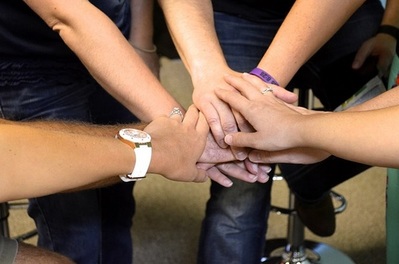
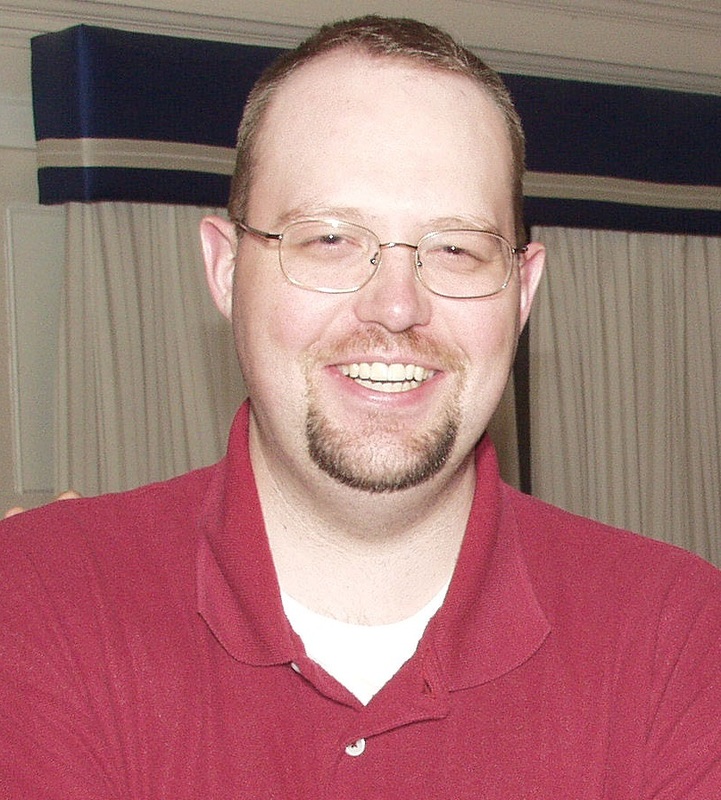
 RSS Feed
RSS Feed